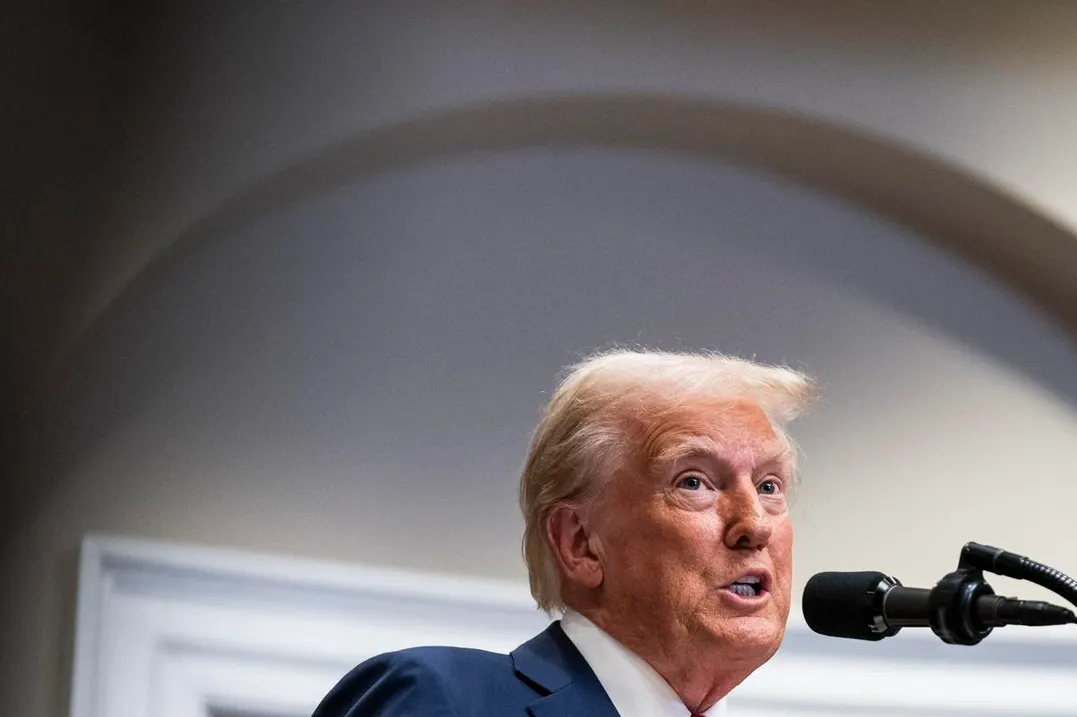President Donald Trump’s executive order designed to dismantle diversity, equity and inclusion programs expands beyond the federal government and alludes to potential legal action against private entities with DEI programs—and many are taking preemptive actions to avoid being targeted.
President Donald Trump announces the new Stargate AI infrastructure initiative in the Roosevelt Room … [+] at the White House on Tuesday, Jan 21, 2025 in Washington, DC. (Photo by Jabin Botsford/The Washington Post via Getty Images)
The Washington Post via Getty Images
Key Facts
Trump issued orders within the first 48 hours of his swearing in that directed all federal agencies to halt DEI initiatives, cut chief diversity officers, put DEI employees on paid leave and make sure federal contractors verify they don’t “operate any programs promoting DEI that violate any applicable federal anti-discrimination laws,” according to the most sweeping DEI-focused order Trump issued.
He also took aim at DEI initiatives in the private sector by rescinding a 1965 directive signed by President Lyndon B. Johnson that required private federal contractors maintain anti-discrimination programs, and requiring federal agencies to identify, within 10 days, contractors “using coded or imprecise language” to “obscure” DEI initiatives.
Which Private Businesses Or Entities Could Be Impacted By Trump’s Dei Orders?
Each federal agency must also identify “up to nine potential civil compliance investigations” of private sector entities, including publicly traded corporations, nonprofits and foundations, state and local bar and medical associations, and institutes of higher education with endowments over $1 billion. The orders don’t specifically state what type of ramifications private-sector entities could face, but the attorney general must submit a report within 120 days with enforcement recommendations, including potential litigation or regulatory action. The language in the order suggests the directives apply broadly to the private sector, not just entities that contract with the federal government or receive federal funding.
What Role Will The Eeoc Play In Dei Rulings?
The Equal Employment Opportunity Commission, which handles discrimination-related workplace complaints, is expected to rule against DEI initiatives after Trump appointed Republican Andrea Lucas to lead the independent agency. Lucas has been outspoken against DEI initiatives prior to her appointment, and in accepting the role, she said “rooting out unlawful DEI-motivated race and sex discrimination” is a priority. The EEOC makes precursory determinations in discrimination-based employment disputes, with the aim of settling cases before they become lawsuits.
What Led Up To Dei Falling Out Of Public Favor?
The Supreme Court determined in 2023 that Harvard University and the University of North Carolina’s affirmative action policies taking race into account when making admissions decisions were unconstitutional, ruling in favor of a student group that brought the cases, arguing they were a violation of the 14th Amendment’s equal protection clause and unfair to white and Asian American applicants. The decision prompted larger pressure campaigns and a wave of lawsuits from conservative groups and activists against private-sector race-focused hiring practices, usually through DEI policies. Amazon, Honeywell and Pfizer have all won cases challenging DEI-related actions, while a federal appeals court dismantled Nasdaq rules to enhance gender and racial diversity on its companies’ boards.
Key Background
Trump’s most sweeping DEI-focused executive order alleges the policies favor “an unlawful, corrosive and pernicious identity-based spoils system” by “diminishing the importance of individual merit, aptitude, hard work, and determination.” It rescinded a string of executive orders dating back to 1965, including a 1994 order to address environmental justice in minority and low-income populations. The orders have effectively put business leaders on notice, according to legal experts, including New York University lawyer Kenji Yoshino, who told The New York Times it’s “a way of striking fear into organizations’ hearts,” while Jenner & Block managing partner Ishan Bhabha told the Times he’s received an influx of inquiries this week from clients concerned about their DEI programs. Many companies had already begun to take pre-emptive action, anticipating Trump’s move and facing pressure from conservative groups and activists bolstered by the 2023 Supreme Court ruling. Meta told employees earlier this month it would stop working on DEI programs and make other rollbacks to existing policies, while Tractor Supply, John Deere, Harley Davidson, UBS, Walmart, Ford, McDonald’s, Amazon and a host of other major companies have also taken steps back on DEI and DEI-adjacent initiatives.
Further Reading


